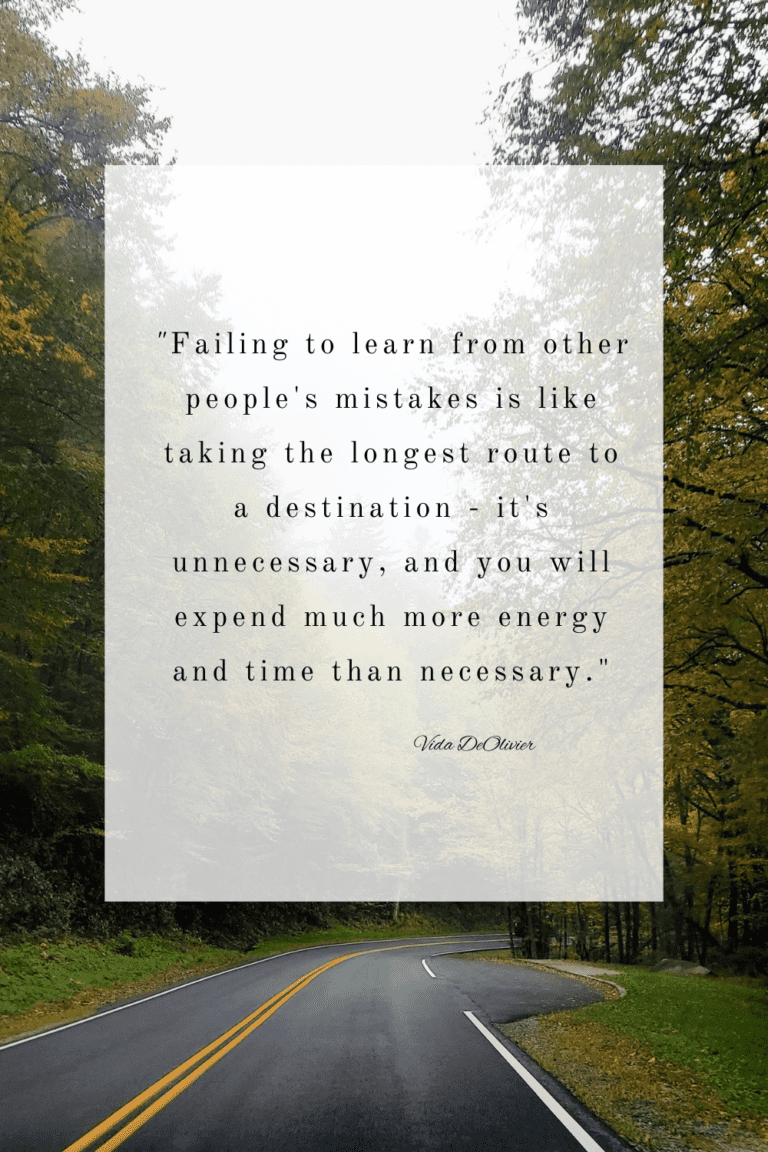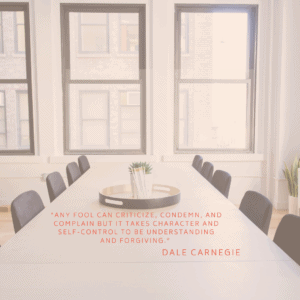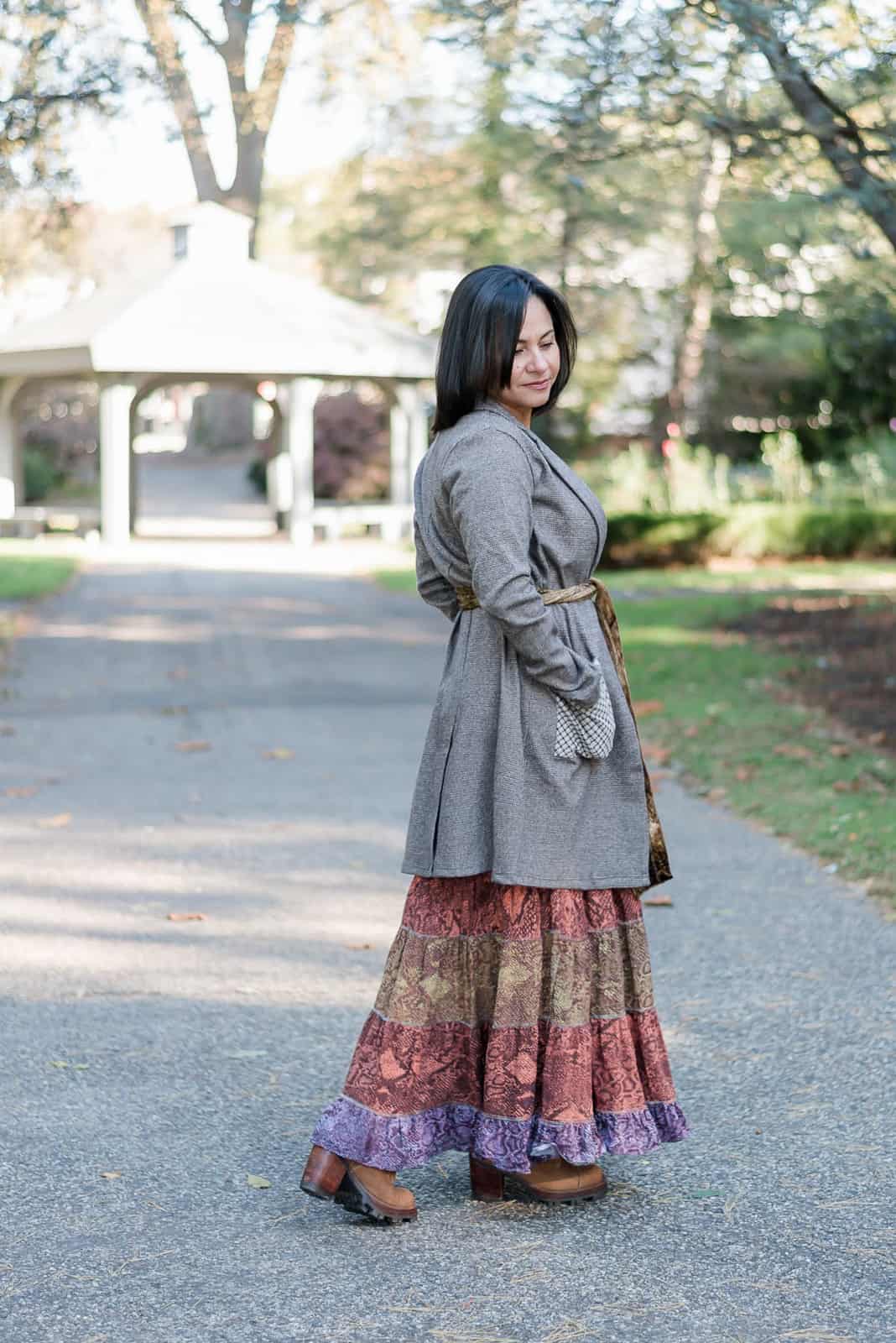
They say that experience is the best life teacher, and it is if we stop to evaluate and reflect on it. Also, we learn more from our mistakes than from our successful experiences. However, life is short, and we don’t need to always make mistakes to have better lessons. But what if I tell you that you can gain valuable insights learning from others’ mistakes? Yes, you can learn to explore the benefits of learning from other people’s mistakes and how to turn those insights into actionable steps.
Don't Judge; Instead, Put Yourself in Their Shoes
Learning from other people’s mistakes is an invaluable way to grow if you take a step back and put yourself in their shoes instead of quickly judging someone for making a mistake. I always ask myself a magic question: What is the lesson here for me? What can I learn from this?
I think about how I could have avoided the same mistakes, the consequences if I had made the same boo-boo, or what I could do differently. By observing and analyzing the errors made by others, we can all learn from the experiences of others and use them to our advantage. Taking the time to talk to those who have made similar mistakes can provide valuable insights. They can share their stories, lessons, and how they’ve handled similar situations. By doing this, we can gain precious knowledge to help us make better decisions and create more positive outcomes for our future.
Avoid Costly Errors:
Take Advantage of Learning from Others' Experiences
One of the biggest advantages of learning from other people’s mistakes is that it allows us to avoid making the same errors ourselves. For example, if we see a friend who spends beyond their means and ends up in debt, we can learn from their mistake by being more mindful of our own spending habits. Or, if we hear about a colleague who is burned out from working too much, we can prioritize work-life balance in our own lives.
When I see a friend holding themselves back, sabotaging themselves because of limited beliefs, I look closely at my friend’s error and evaluate if, in a certain way, I could be doing the same. I dig into my goals and dreams to see if I’m not limiting myself to false beliefs created at a specific time of my life, maybe in my childhood.
Time and Energy
Furthermore, by learning from others’ mistakes, we can save ourselves a lot of time and energy. Instead of making the same mistakes and learning the hard way, we can take the shortcut by learning from someone else’s experience. In some cases, this can mean avoiding a career path or investment that turned out to be a bad idea.
Rather than spending time and energy on making mistakes, take time to learn from the mistakes of others. You can have a much shorter journey to success.
Vida DeOlivier
When you learn from other people mistakes you turn a more empathetic person.
Another benefit of learning from other people’s mistakes is that it can help us become more empathetic and understanding individuals. When we see others fail or make mistakes, we can better appreciate their challenges and obstacles. This can help us become more patient and supportive when we encounter similar situations in our own lives.
Developing empathy can have many positive effects on both our personal and professional lives, as well as on society as a whole. When we’re empathetic, we’re better able to understand and connect with other people. This can lead to stronger and more meaningful relationships. It allows us to listen and communicate more effectively, as we’re better able to understand the needs and perspectives of others. When people feel understood and valued, they’re more likely to cooperate and work towards common goals.
So how can we turn insights gained from other person mistakes into actionable steps for ourselves?
Identify the lessons to learn behind the mistakes made
The first step is to identify the lesson that can be learned and turn those insights gained into actionable steps to be conscious of our own mistakes. Once we have taken this step, we can then look at the mistakes of others as a learning tool and use it to our advantage. We can observe how they handled their mistakes. What strategies they employed to fix them, and what was the result of their actions, if there was any.
For example, If we observe a friend who is always complaining about being late on projects, constantly procrastinating, and missing deadlines. We can learn from their painful mistakes and use them as a life lesson advantage to better manage our time. We can prioritize our tasks, set achievable goals, and create a timeline for our essential duties to ensure that we stay on track and avoid falling into the same procrastination trap. This will allow us to better plan our days and weeks to prevent similar situations.
Taking Action on the Lessons Learned
The second step is to apply that lesson to our own lives. Using lessons learned from others is crucial to our growth and development. It can be tough to adjust our habits and routines to take what we have learned and use it in our lives, but it is an important step. For example, if someone else has yet to save for retirement early enough, we can use this as a lesson to start saving immediately. We can put money in a retirement account and adjust our lifestyle to ensure we save for the future. Although it can be challenging to make changes, we must apply what we have learned to avoid making the same mistakes that others have made and achieve our own goals and objectives.
Monitor:
Making Changes to Our Habits, Routines, and Mindsets
Finally, Learning from others’ mistakes is a continuous process, and, it is essential to monitor our progress and adjust as necessary. Keeping track of our successes and errors can help us identify areas for improvement and give us a clear direction of where to go next. To do that successfully, we must be open-minded and flexible in learning from others’ errors and applying the lessons to our lives.
Actively monitoring our habits and routines can help us stay on track and keep our goals in sight. Additionally, learning from the mistakes of others allows us to observe and study the successes and failures of those around us. By doing so, we can identify patterns of behavior that have either positive or negative outcomes and adjust our habits and mindsets accordingly.
Conclusão
We all make mistakes, and it can be challenging to learn from them. However, learning from other people’s mistakes can provide valuable insights and wisdom to apply to our lives. By avoiding making the same errors ourselves, we can save time and energy, become more empathetic, and progress toward our goals.
If we take the time to monitor our habits, routines, and mindsets, we can gain invaluable insight into the areas where we may need to make changes. But look—Never judge and always ask the magic question: What is the lesson here for me?
xoxoxo
Vida








